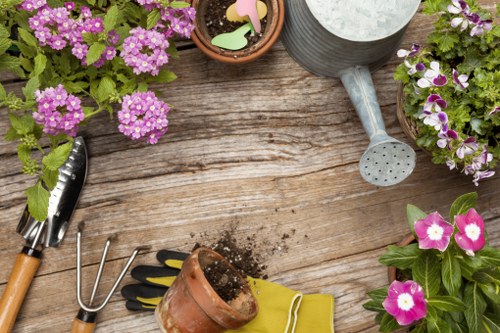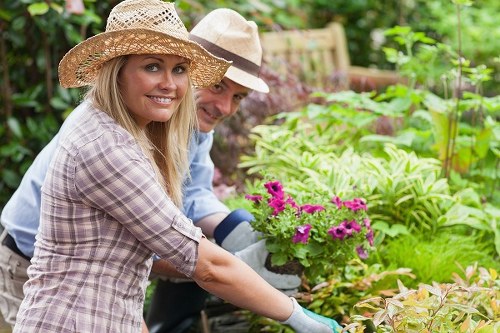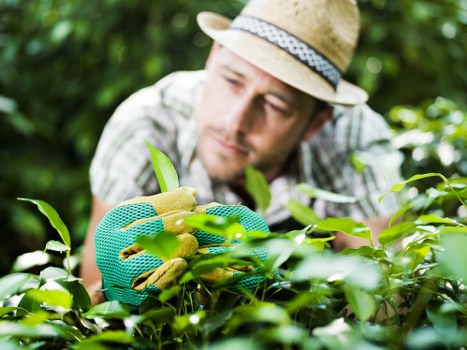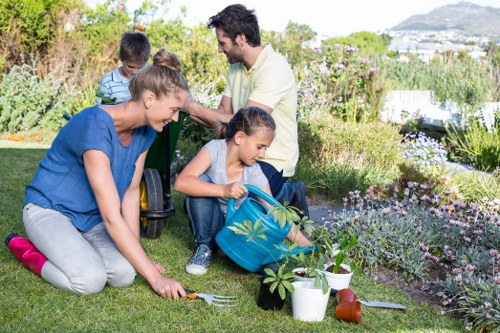Gardener Ratcliff: A Comprehensive Insight

Gardener Ratcliff has emerged as a prominent figure in the world of horticulture, blending traditional gardening methods with modern innovations. His approach emphasizes sustainability, community engagement, and the intrinsic beauty of nature.
With a career spanning over two decades, Ratcliff has influenced countless gardeners and enthusiasts. His techniques are not only effective but also environmentally friendly, ensuring that gardening remains a rewarding and responsible activity.
Ratcliff’s philosophy centers around the idea that gardening is a form of art and therapy. He believes that cultivating plants can lead to personal growth and a deeper connection with the environment.
Early Life and Background

Born and raised in the serene countryside, Gardener Ratcliff developed an early love for plants and nature. His childhood was filled with exploring gardens, learning from local farmers, and experimenting with various gardening techniques.
Ratcliff pursued a degree in horticulture, where he excelled in both theoretical and practical aspects of plant science. His academic background laid a strong foundation for his future endeavors in gardening and environmental conservation.
After completing his education, Ratcliff traveled extensively, gaining diverse experiences that shaped his unique gardening style. These travels exposed him to different climates, plant species, and sustainable practices, all of which he would later incorporate into his work.
Gardening Philosophy

At the core of Ratcliff’s gardening philosophy is the principle of sustainability. He advocates for methods that preserve natural resources, reduce waste, and minimize the environmental footprint of gardening activities.
One of his key strategies is the use of native plants, which are better suited to local climates and require less maintenance. This approach not only conserves water but also supports local ecosystems by providing habitats for native wildlife.
Additionally, Ratcliff emphasizes the importance of composting and recycling organic waste. By turning kitchen scraps and garden debris into nutrient-rich compost, gardeners can enrich the soil without relying on chemical fertilizers.
Innovative Techniques

Ratcliff is known for his innovative gardening techniques that blend traditional wisdom with modern technology. One such method is vertical gardening, which allows for efficient use of space and can be particularly beneficial in urban settings.
Another notable technique is companion planting. By carefully selecting plants that support each other’s growth, gardeners can create thriving gardens with reduced need for pesticides and fertilizers.
Ratcliff also advocates for the use of smart irrigation systems that optimize water usage based on weather conditions and soil moisture levels. These systems help in conserving water while ensuring that plants receive the necessary hydration.
Community Engagement

Beyond his individual gardening practices, Ratcliff is deeply committed to community engagement. He organizes workshops, seminars, and community gardens to share his knowledge and inspire others to take up gardening.
Ratcliff believes that gardening can foster a sense of community, bring people together, and improve mental well-being. His initiatives often focus on making gardening accessible to all, regardless of age or background.
Through collaborations with local schools and organizations, Ratcliff has introduced gardening programs that educate the younger generation about the importance of nature and sustainability.
Impact and Legacy
Gardener Ratcliff’s contributions to the field of horticulture have been widely recognized. His innovative approaches and dedication to sustainability have set new standards in gardening practices.
Ratcliff’s work has not only beautified countless gardens but also promoted environmental stewardship. His emphasis on sustainable gardening has inspired many to adopt eco-friendly practices, leading to a positive impact on the environment.
As a mentor and educator, Ratcliff has nurtured the talents of many aspiring gardeners. His legacy continues through the communities he has built and the lives he has touched.
Publications and Media
Ratcliff has authored several books and articles on gardening, covering a wide range of topics from basic gardening techniques to advanced sustainable practices. His writings are appreciated for their clarity, practicality, and depth of knowledge.
He is a regular contributor to gardening magazines and has appeared on various television programs, where he shares his expertise and offers valuable gardening tips to a broader audience.
In addition to print and television, Ratcliff maintains an active online presence through his blog and social media platforms. Here, he engages with followers, answers gardening questions, and showcases his latest projects.
Gardening Tips from Ratcliff
Gardener Ratcliff is known for his practical and easy-to-follow gardening tips. Here are some of his top recommendations:
- Start with Healthy Soil: Ratcliff emphasizes that good soil is the foundation of a successful garden. Regularly test soil pH and nutrient levels, and amend as necessary with compost and natural fertilizers.
- Choose the Right Plants: Select plants that are well-suited to your local climate and soil conditions. Native plants often require less maintenance and are more resilient.
- Practice Water Conservation: Use drip irrigation systems and mulch to retain soil moisture and reduce water usage.
- Encourage Biodiversity: Plant a variety of species to attract beneficial insects, birds, and other wildlife that help in pest control and pollination.
- Regular Maintenance: Keep up with weeding, pruning, and monitoring plant health to prevent issues from escalating.
Seasonal Gardening
Ratcliff advises gardeners to plan their activities according to the seasons. Each season offers unique opportunities and challenges:
- Spring: Focus on planting new seeds, preparing the soil, and starting early crops.
- Summer: Ensure adequate watering, manage pests, and harvest early produce.
- Autumn: Plant perennials, compost fallen leaves, and prepare the garden for winter.
- Winter: Maintain tools, plan for the upcoming year, and protect plants from frost.
By aligning gardening activities with seasonal changes, gardeners can optimize plant growth and maintain a healthy garden year-round.
Tools and Equipment
Having the right tools can significantly enhance the gardening experience. Ratcliff recommends investing in quality tools that are durable and suited to your specific gardening needs.
Essential tools include:
- Hand Trowel: For digging small holes and transplanting seedlings.
- Pruning Shears: For trimming and shaping plants.
- Garden Fork: For aerating soil and turning compost.
- Watering Can: For precise watering of plants.
- Gloves: To protect hands from thorns, dirt, and chemicals.
Additional equipment such as wheelbarrows, hoses, and raised beds can also enhance efficiency and productivity in the garden.
Organic Gardening
Ratcliff is a strong advocate of organic gardening. He encourages gardeners to avoid synthetic chemicals and instead use natural methods to nourish plants and control pests.
Some organic practices include:
- Using Compost: Natural compost enriches the soil with essential nutrients.
- Natural Pest Control: Introducing beneficial insects like ladybugs to manage pests.
- Crop Rotation: Changing the types of plants grown in a particular area to prevent soil depletion and reduce pest buildup.
- Mulching: Applying organic mulch to conserve moisture and suppress weeds.
By embracing organic methods, gardeners can create healthier plants and a more sustainable garden ecosystem.
The Future of Gardening with Ratcliff
Looking ahead, Gardener Ratcliff envisions a future where gardening plays a crucial role in environmental conservation and community well-being. He advocates for urban gardening initiatives, vertical farms, and rooftop gardens to address space constraints and promote green living in cities.
Ratcliff is also exploring the integration of technology in gardening, such as smart sensors and automated systems, to enhance efficiency and productivity while maintaining sustainability.
His ongoing projects aim to create models of sustainable gardens that can serve as blueprints for communities worldwide, demonstrating the potential of gardening to transform lives and environments.
Educational Initiatives
Education is a key component of Ratcliff’s mission. He collaborates with educational institutions to incorporate gardening into curricula, teaching students about plant biology, ecology, and sustainability.
Workshops and training sessions are regularly conducted to equip gardeners with the skills and knowledge needed to cultivate thriving gardens. These initiatives also emphasize the therapeutic benefits of gardening, promoting mental and emotional well-being.
Through his educational efforts, Ratcliff aims to inspire a new generation of environmentally conscious and skilled gardeners who can contribute to a greener and more sustainable world.
Local Relevance: Surrounding Areas of Ratcliff
Gardener Ratcliff operates primarily in and around Ratcliff, an area known for its rich gardening tradition. Here are some of the closest areas to Ratcliff that are significant to his work:
- Weston: Located 2 miles west of Ratcliff, Weston is renowned for its botanical gardens and annual flower show, events frequently attended by Ratcliff.
- Greenfield: Just 3 miles north, Greenfield hosts several community garden projects initiated by Ratcliff to promote local engagement.
- Sunnyvale: 4 miles southeast, Sunnyvale is a hotspot for urban gardening, where Ratcliff has implemented vertical gardening techniques.
- Lakeside: Situated 5 miles east, Lakeside offers ample water resources, ideal for Ratcliff’s sustainable irrigation systems.
- Elmwood: 6 miles southwest, Elmwood is home to Ratcliff’s primary nursery, supplying a variety of native plants to the region.
- Maple Ridge: 7 miles north-west, Maple Ridge collaborates with Ratcliff on environmental conservation projects.
- Riverbend: 8 miles south, Riverbend features several of Ratcliff’s signature gardens that attract visitors year-round.
- Oak Grove: 9 miles northeast, Oak Grove benefits from Ratcliff’s composting initiatives, ensuring rich soil for its gardens.
- Pinecrest: 10 miles west, Pinecrest showcases Ratcliff’s organic gardening practices in its community spaces.
- Cedar Park: 11 miles southeast, Cedar Park is another area where Ratcliff promotes sustainable gardening through educational programs.
- Birchwood: 12 miles north, Birchwood’s extensive green spaces are maintained using Ratcliff’s eco-friendly techniques.
- Willowbrook: 13 miles southwest, Willowbrook participates in Ratcliff’s seasonal planting and harvesting events.
- Cherry Hill: 14 miles east, Cherry Hill benefits from Ratcliff’s expertise in seasonal gardening and plant selection.
- Hawthorne: 15 miles northeast, Hawthorne collaborates with Ratcliff on research projects focused on urban gardening innovations.
Each of these areas contributes uniquely to Ratcliff’s gardening initiatives, fostering a network of sustainable and thriving gardens throughout the region.
Frequently Asked Questions
1. Who is Gardener Ratcliff?
Gardener Ratcliff is a renowned horticulturist known for his sustainable gardening practices and community engagement. He has dedicated over two decades to promoting eco-friendly gardening techniques and educating others on the benefits of gardening.
2. What are Gardener Ratcliff’s key gardening principles?
Ratcliff emphasizes sustainability, the use of native plants, organic gardening methods, water conservation, and community involvement. His approaches aim to create beautiful, healthy gardens that are also environmentally responsible.
3. How can I get involved in Gardener Ratcliff’s community projects?
You can participate by attending his workshops, volunteering at community gardens, following his online platforms for updates, or collaborating with local schools and organizations involved in his initiatives.
4. What are some of Gardener Ratcliff’s most popular gardening techniques?
Some of his popular techniques include vertical gardening, companion planting, smart irrigation systems, and organic pest control. These methods are designed to maximize efficiency and sustainability in gardening.
5. Where can I learn more about Gardener Ratcliff’s work?
You can learn more by visiting his blog, reading his published books and articles, attending his seminars and workshops, or following him on his social media channels where he regularly shares gardening tips and updates.